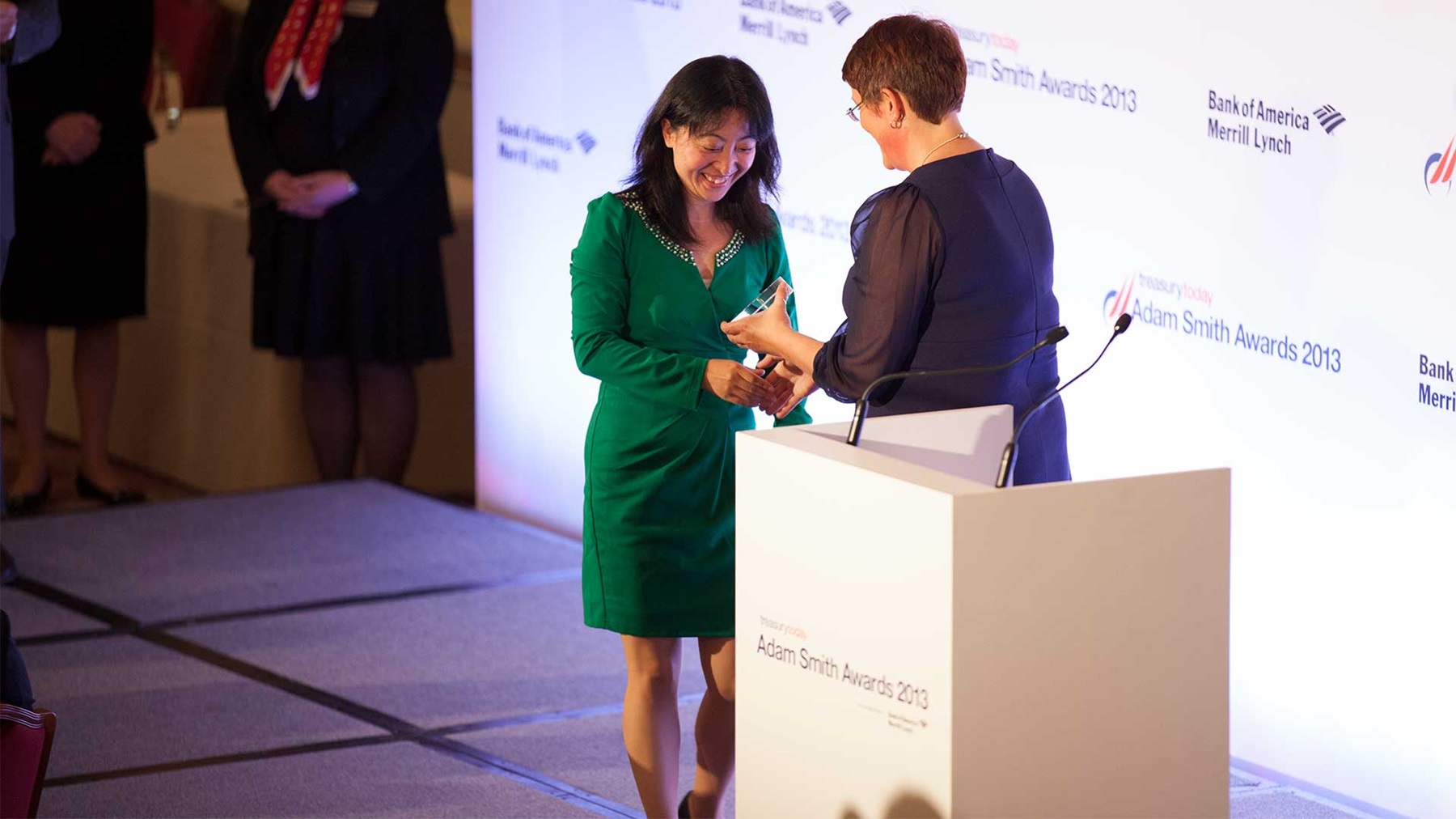
Photo of Linda Zhang, Honeywell and Joy Macknight.
Some remarkable benefits are highlighted in this case study where Honeywell undertook seven new projects in the last two years with total investment of close to $400m saving millions of US dollars in tax and in financing costs.
Linda Zhang
Regional Treasury Manager Shanghai, People’s Republic of China

Honeywell (www.honeywell.com) is a Fortune 100 diversified technology and manufacturing leader, serving customers worldwide with aerospace products and services; control technologies for buildings, homes and industry; turbochargers; and performance materials. Based in Morris Township, N.J., Honeywell’s shares are traded on the New York, London, and Chicago Stock Exchanges.
In the Asia Pacific region, Honeywell’s revenue is in excess of $6 billion and the company employs close to 34,000 employees 14 countries across the region. China is one of its most important markets and it has invested over $1 billion across all businesses and have set up subsidiaries and joint ventures (JVs) in over 20 cities across China.
Linda Zhang, Regional Treasury Manager explains: “Supporting such growth requires a significant amount of liquidity and we wanted to adopt the most effective and efficient means of funding such growth.”
There are essentially three ways Honeywell can fund growth in China:
External financing
Honeywell can theoretically raise funds through local bank financing in China although the domestic ‘Panda’ bond market is closed to foreign companies. Listing on the local Chinese exchange, while theoretically possible after a company has been in existence for a period of time, is usually not chosen by foreign multinational companies (MNCs) for strategic reasons. This is because MNCs typically want to list in their country of incorporation to facilitate the engagement of analysts, encourage higher investor familiarity with the firm and not have to deal with the complexity of another listing disclosure and reporting requirements and the need to raise funds in its functional currency. Alternatively, a company can raise funds through the issuance of ‘Dim Sum’ bonds in Hong Kong, or even bond issuance back in the US.
Internal financing (including cross-border inter-company loans into China)
Funding through inter-company loans may also be an alternative having the advantage of utilising internal cash. Such funding needs to be structured on the ‘arm’s length’ principle. This will lead to tax leakages in the form of corporate income tax arising from interest income. Such cross-border loans will need to have State Administration of Foreign Exchange’s (SAFE) approval and the borrower will need to have a sufficient funding gap (the difference between total investment and registered capital, as required under Ministry of Commerce of the People’s Republic of China’s (MOFCOM) regulation). Furthermore, if such inter-company lending were to be from a Chinese subsidiary, the domestic inter-company loan will have to be structured in the form of an ‘entrustment loan’ (direct inter-company lending is not allowed in China) and there will be further ‘leakages’ in the form of business tax and agency fees paid to the bank as part of ‘entrustment’ loan arrangements.
Dividends from subsidiaries
Declaration of dividend is another option but the cross-border payment of such dividend will be subject to US tax. While the harnessing of internal funds through such a mechanism is feasible, it adds to the cost of funding. Income to US holding company is subject to high US corporate income tax. Dividend payments that do not involve cross-border payments will not attract US corporate income tax.
With the above three funding options available, Honeywell’s task was to assess the most optimal funding solution so as to preserve the greatest operational flexibility, at the lowest cost and in the most efficient structure possible. The existing legal structure of Honeywell’s more than 40 legal entities in China was re-assessed. In the course of this assessment, the company confirmed its understanding of Honeywell (China) Co. Ltd.’s official registration and certification as an ‘investing company’, and proceeded then to study if a more efficient shareholding structure could be assembled under this umbrella, so as to obtain the most optimal funding structure.
Seven new projects within the past two years, which have had the investment company as the investor, with total investment close to $400m (with an equity contribution of approximately $70m), have been executed. The funding requirements were completely met from onshore funds, without any tax and or interest leakages. This has resulted in savings of approximately millions of US dollars in tax and financing costs.
Zhang concludes: “Through this project, the Honeywell treasury team has earned the respect and become a trusted business partner for the Chinese business. Not resting on its laurels, the team has since continued to keep abreast of China’s rapidly changing regulatory landscape, seeking and identifying opportunities of adopting these changes to support Honeywell’s global growth strategy.”